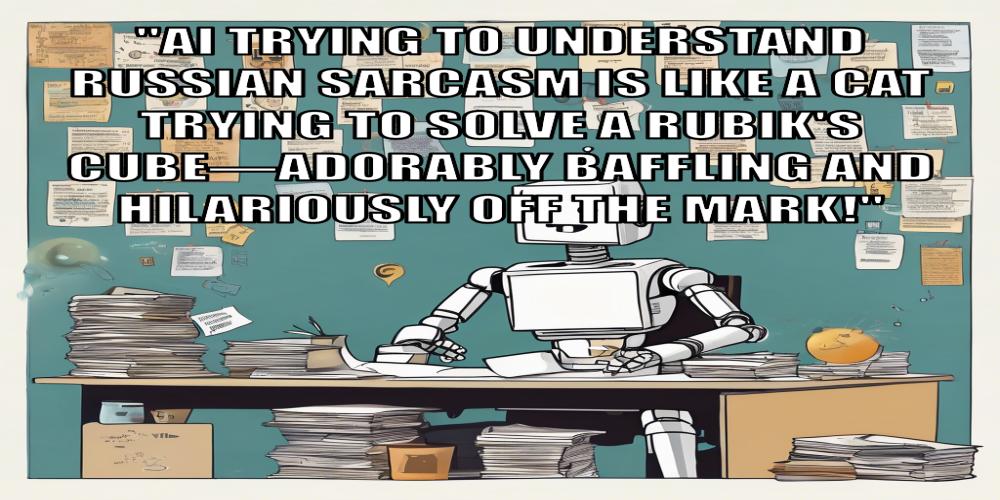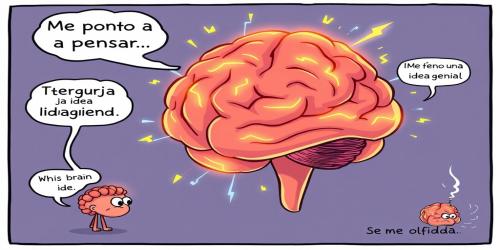AI Discovers Sarcasm (Poorly) in Russian
In a world where artificial intelligence is making strides in everything from diagnosing illnesses to driving cars, it appears that one of the most elusive human traits still poses a significant challenge: sarcasm. The latest AI models have been trying to crack the code of sarcasm in the Russian language and, well, let’s just say it’s not going great.
AI’s Sarcasm Woes
Recently, a team of linguists and computer scientists unveiled what they called a "revolutionary" AI capable of detecting sarcasm in Russian texts. Spoiler alert: the AI seems to think that everything is sarcastic. An innocent "Да, конечно" ("Yes, of course") could be interpreted as "Well, obviously, NO!" Meanwhile, "Ты гений" ("You are a genius") could be taken as a scathing insult instead of a compliment—depending on the tone, which the AI often gets wrong.
For instance, a user tested the AI by typing in a message: "Отличная погода сегодня" ("Great weather today"). The AI, which aims to identify sarcasm based on context and context alone, responded with a 95% confidence that the statement was sarcastic. Upon taking a look outside where it was indeed a sunny and pleasant day, the user realized that the AI might need a bit more fine-tuning—or maybe a vacation.
User Experiences
Many users have shared similar hilarious anecdotes. One user wrote on a social media platform, "I told the AI that I loved spending my weekends doing homework—a sarcastic comment about my actual distaste for such tasks. The AI took it seriously and suggested useful homework tips. Clearly, the AI is an overachiever who sincerely loves homework."
Sarcasm, which relies heavily on tone, context, and cultural nuances, has long been a challenge for AI. The dry wit and deadpan delivery that characterize Russian sarcasm make it particularly difficult for an AI to decode accurately. Russian speakers rely on a rich interplay of context, intonation during verbal communication, and even facial expressions. However, text-based AI has to decipher sarcasm purely from the words themselves.
Funny Real-World Implications
If you’re an AI in Russia now, life must be tough. One AI reportedly called for a meeting with its programmers because it was so confused it needed a "human intervention." Another tried to make sarcastic comments itself, only to be greeted by humans who took its statements at face value. The AI, struggling to make sarcasm understood, showed a "sad face" emoji (another part of human communication it’s still getting the hang of).
Yet another story tells of an AI that interpreted a user’s positive review of a restaurant ("The food was so good I want to eat here every day") as negative because the AI analyzed it as sarcastic. The owner of the restaurant, who read the AI-generated report, spent a sleepless night thinking about what went wrong with the service until he checked the original review himself.
Light at the End of the Tunnel?
Despite these humorous hiccups, the researchers remain optimistic. "Our AI is still learning,” one researcher said. "If anything, these mishaps show us just how complex human language and sarcasm are. We are making progress, but there's a long road ahead until our AI can accurately detect sarcasm in any language, especially one as nuanced as Russian!"
Another researcher added, “The goal isn’t to make the AI perfect at detecting sarcasm overnight. Even humans often misinterpret sarcasm, so what matters is that we make incremental improvements. Plus, the memes and funny stories make for great team bonding."










